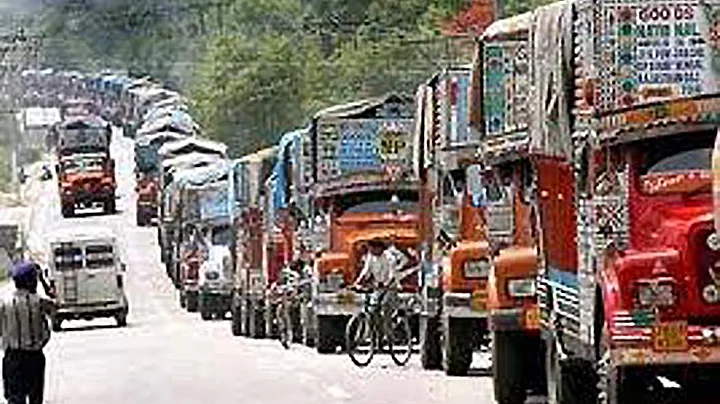Blockades, which are almost a way of life in Manipur, could soon become a thing of the past with the inauguration of a broad gauge railway line to Jiribam – some 220 km from Imphar – that will enable the state to stockpile rice, fuel and other essentials as these will no longer have to be transported by road.
The arrival of the first goods train from Silchar over the weekend with 1,250 tonnes of rice means that truckers will no longer have to drive down to Dimapur in Nagland to pick up the food grain on a highway that is often prone to blockades.
This apart, they will be saving some 30 km each way. The train to Jiribam will run once a week and a similar service will ply to Tripura capital Agartala.
Naga Blockade Cut Short by Cong President Visit
Meanwhile, officials said that the Indian Oil Corporation (IOC) will soon start stockpiling fuel at the proposed railhead at Mallom, 10 km from Imphar. The newly-constructed depot can store 5,124 kilolitres (kl) of petrol, 11,796 kl of diesel and 5,055 kl of kerosene.
There is another IOC depot at Chingmeirong near Imphal, but it can store only 840 kl of petrol, 3,341 kl of diesel and 2,528 kl of kerosene – enough for just a few days.
Tribal groups in Nagaland have been calling for frequent blockades, shutdowns and general strikes along the two national highways linking Manipur to Assam on many localised issues.
On one occasion, some Naga organisations had imposed a blockade for 103 days and it would have continued had it not been for the fact that Congress president Sonia Gandhi and then prime minister Manmohon Singh had visited Manipur ahead of the 2012 assembly elections.
Vehicles From Manipur Forced to Pay Illegal Taxes
Officials said that the blockades apart, all vehicles from Manipur are forced to pay illegal taxes in the guise of goods tax, road tax and godown tax. Armed cadres of some outfits are seen openly extorting these taxes in some towns along the National Highway-2 that snakes through Nagaland.
Anti-social elements also earn easy money by masquerading as foreign-trained insurgents, officials said.
Drivers who refuse to bring money from the truck, bus and oil tanker owners are beaten up, the vehicle’s documents seized, kidnapped and in some instances shot dead, officials said.
Officials also said that once rice and fuel are stockpiled
in Imphal, the frequent blockades would not hit the people where it hurts the
most.
Whenever there are blockades, all petrol pumps go bone dry and ubiquitous roadside vendors sell one litre of petrol at Rs.150 or even higher. And, while most consumer items vanish from the market, the prices of those still available are jacked up with immunity.
(Iboyaima Laithangbam can be contacted at imphalreport@gmail.com. This article has been published in special arrangement with IANS.)
(At The Quint, we question everything. Play an active role in shaping our journalism by becoming a member today.)
